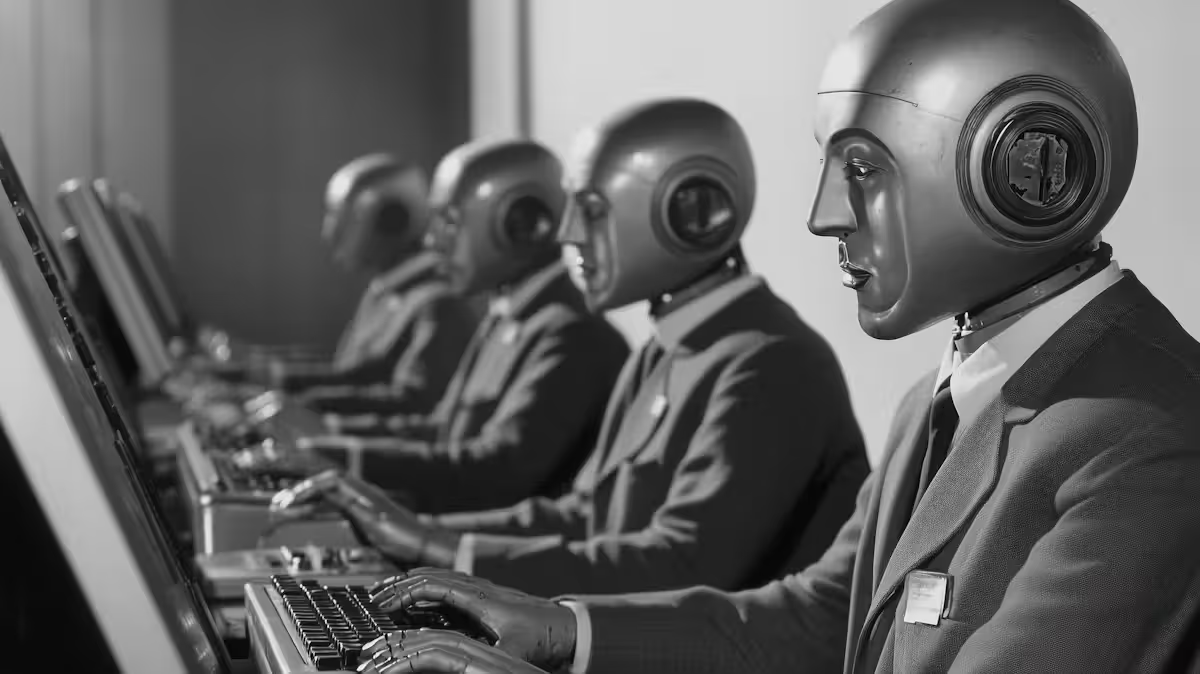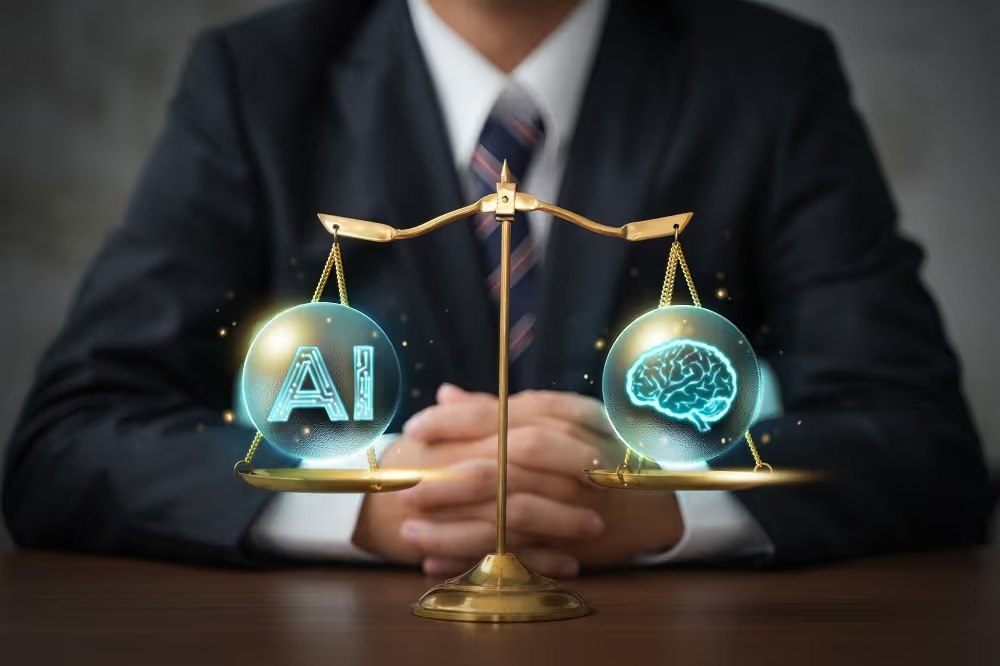
The Impact of AI on the Job Market
Rather than fearing AI, could we focus on the opportunities it brings and leverage its potential to advance society in innovative and meaningful ways?

Image source: Theinformation
Reading time: 3 minutes
Can AI take over our jobs? The Impact of AI on the Job Market
Artificial Intelligence (AI) is no longer a fantasy; it has become an integral part of our daily lives and the business world. It promises more efficient processes, higher productivity, and innovation across various domains. However, this technological progress raises questions for many, most notably: “Will AI take over our jobs?” This article delves into the nuances of this discussion, offering both historical insights and a forward-looking perspective.
Lessons from the Past: Jobs and Technology
To understand the impact of this transition and the opportunities it can unleash, it’s helpful to look back at the period between 1850 and 1910, when society gradually shifted from horse-drawn carriages to automobiles. As cars became more commonplace, fears of job loss grew. Yet, the rise of the automobile industry spurred growth in new sectors, such as oil production, road construction, and automotive manufacturing.
AI appears to be following a similar path. Research from Adecco reveals that 57% of Dutch workers are concerned about job losses due to AI. Changes that took 60 years in the automobile industry are now unfolding in just five to ten years with AI. But, just as the automobile industry created new opportunities and jobs, AI is doing the same. Roles such as data analyst, AI ethicist, and robotics specialist, that are unimaginable without AI, are emerging (source (in Dutch)).
To fully harness AI’s potential, it is essential not only to focus on technological advancements but also to address the ethical challenges that come with it. Investing in education, training, and awareness is crucial, as is building a strong foundation for ethically responsible AI applications. This approach ensures we can not only embrace the challenges of AI but also maximize its benefits.
Want to read more? Check out this link
 Image source: History101
Image source: History101
What Does AI Mean for the Job Market?
AI has the potential to bring both positive and challenging changes to the workforce:
- Automation of repetitive tasks: Tasks like data entry, administrative processes, and simple analyses are increasingly handled by AI, reducing the need for human involvement in some traditional roles.
- Creation of new job opportunities: As discussed earlier, AI opens doors to new roles and sectors, including AI model development, training, and maintenance.
- Increased productivity: By automating routine tasks, employees can focus on strategic and creative work, boosting both productivity and job satisfaction.
- Reskilling and upskilling: The job market will demand flexibility from workers. Investments in reskilling and acquiring technological skills will be essential for staying relevant.
AI: As a Partner, not a Replacement
While AI is impressive, it has its limitations. It can perform tasks it’s trained for, but it currently lacks creativity, empathy, and the ability to form human connections. These qualities remain indispensable in fields like education, healthcare, and customer service. AI should therefore be seen as a partner that supports our work rather than a replacement for it.
Conclusion: Progress Through a Historical Lens
History shows that the advent of new, advanced technologies does not lead to mass job losses but rather opens doors to new sectors and roles. The same holds true for AI.
Realizing AI’s full potential requires a thoughtful approach. This means not only investing in technological advancements but also addressing ethical concerns and supporting the workforce through reskilling and training. AI offers opportunities not just to make work more efficient and effective but also to empower employees by enhancing their roles with a focus on uniquely human skills like creativity, empathy, and problem-solving.
In short, AI is not a threat but an opportunity. With the right preparation and focus, we can leverage AI as a powerful partner to advance society and the job market.
Want to know how your organisation can use AI to improve processes and support employees? Explore our website to witness the countless possibilies.
This text is optimized using ChatGPT


